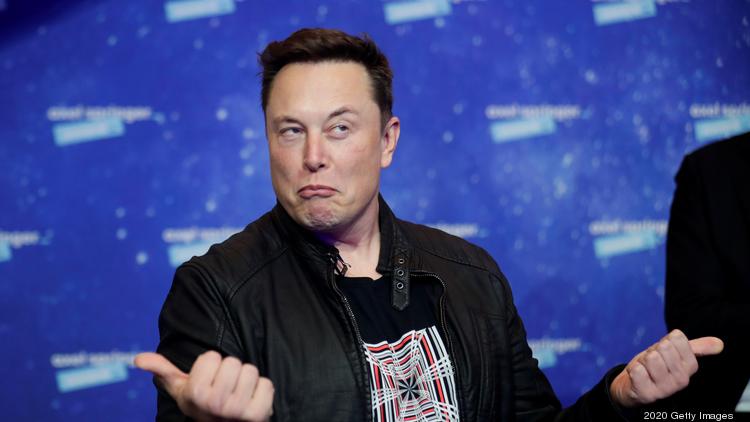Article published in the Philadelphia Business Journal on November 21, 2022.
Since Oct. 27, when Elon Musk closed on his purchase of Twitter, his inconsistent rhetoric and actions as well as the atmosphere at the company can be best described as chaotic. He needs to think through and operationalize his decisions before shooting from the hip. Musk has not demonstrated good critical judgment and is not a role model on how to implement a corporate transformation.
As a free speech advocate, Musk wants to change the Twitter Terms of Service to significantly broaden the types of comments that can be tweeted. On April 14, he stated, “If in doubt, let the speech—let it exist. If it’s a grey area, I would say, let the tweet exist. But in a case where there’s perhaps a lot of controversy, you would not necessarily want to promote that.”
Musk wants to reduce tweet moderation. However, to make the “gray area” judgment decisions referred to in Musk’s comment, the company needs skilled moderators. Fifteen percent of the employees in the safety and integrity group were part of those employees fired on Nov. 4.
Musk’s Twitter Blue User verification initiative is falling short. There has been a rise of impersonations as reported by Alyssa Lukpat of The Wall Street Journal. These impersonators tweet falsehoods, which undermines trust in Twitter. Lukpat writes, “Verified users have falsely posed as LeBron James demanding a trade, George W. Bush attacking Iraqis and Eli Lilly & Co. cutting insulin prices to zero.” Verification was meant to prevent such tweets.
Twitter’s revenue comes from advertising dollars. Since Musk took over Twitter, there has been a significant drop in ad revenue as companies suspend advertising due to their concern that reduced moderation would allow misinformation and unsubstantiated conspiracy theories to be tweeted. Advertisers don’t want to be associated with that content. You would think that Musk would have understood this.
On Nov. 4, Musk blamed activists for the loss of advertisers when he tweeted, “Extremely messed up! They’re trying to destroy free speech in America.” Musk needs a lesson on free speech. Companies are free to decide where to advertise, just as Twitter is free to post controversial content. It’s called freedom to run your business as you see fit, Mr. Musk.

Musk needs to win back advertisers’ confidence by issuing a policy that states that tweets that are baseless; that are posted for the purpose of stirring up discord, hatred and violence and that undermine society will not be tolerated. He then needs to implement that policy by ensuring Twitter’s safety and integrity group is staffed by people with the skills to do the job.
He has been inconsistent in his statements and actions about reducing Twitter staff, creating havoc within the ranks. On Oct. 20, The Washington Post reported that Musk told potential investors that he intended to fire nearly 75% of Twitter’s employees. A week later, Musk stated that he would not do so.
On Nov. 4, approximately 50% of Twitter’s employees were terminated. Musk tweeted, “Regarding Twitter’s reduction in force, unfortunately there is no choice when the company is losing over $4 million per day.”
An insufficient amount of time was spent assessing who should stay and who should go based on employee performance and the skills needed by the company. Terminating employees requires care and thought.
By Nov. 6, Twitter realized that some of those employees terminated two days earlier were needed to make the changes and build the new features that Musk publicly touted, and they were invited to return to the company. Such action doesn’t build trust and confidence in him.
A few days later, Musk issued an ultimatum that any employee not willing to work in a demanding hardcore environment requiring complete dedication to building Twitter 2.0 would be fired and receive three months severance. Employees were told they needed to indicate their decision by 5 pm on Nov. 17.
His ultimatum backfired. More than 2,000 employees took the severance offer, leaving the company woefully understaffed.
Who should assess the performance of a CEO? The gold standard is the independent board of a public company, and I emphasize “independent.” Twitter is now a private company with no board as yet, and when one is formed, the directors will not likely meet the definition of independence. It will be Twitter’s lenders and advertisers who will ultimately hold Musk accountable.
Musk needs to win the confidence of advertisers. He needs to treat employees in a way that shows he respects and values them. He has a long way to go.
Stan Silverman is founder and CEO of Silverman Leadership and author of “Be Different! The Key to Business and Career Success.” He is also a speaker, advisor and widely read nationally syndicated columnist on leadership. He can be reached at Stan@SilvermanLeadership.com

